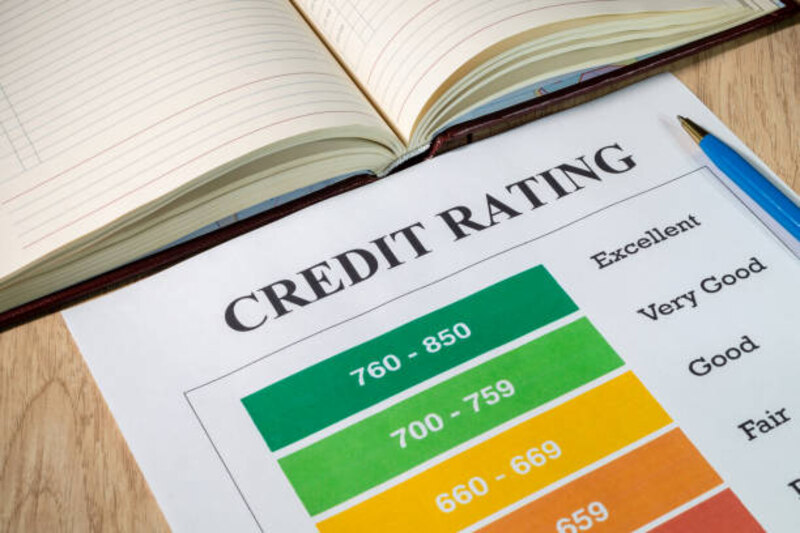How Do Bond Ratings Work?
Aug 28, 2023 By Susan Kelly
Do you ever look at the financial performances of companies or cities and wonder how their bond ratings work? Are the factors that are being taken into account when assessing creditworthiness clear to you? If so, then this blog should give you an in depth understanding of what is involved and why it matters. From A-grade bonds to CCC rating, learn what goes into calculating a bond rating and why these evaluations make debt securities tradable investments. This post also discusses potential conflicts of interest between agencies, investors, and issuers as well as strategies that can be used to mitigate related risks.
What is a Bond Rating and How is it Used in Investing?
Bond ratings are a crucial part of investing in fixed-income securities. These ratings are given by credit agencies such as Moody's, Standard and Poor's, and Fitch, that provide an analysis of a bond issuer's creditworthiness. They take into account various factors such as the financial health of the issuer, past repayment history, and the economic landscape among others. Each bond rating is indicated by a letter or number, such as A, AA, or AAA, indicating the bond's creditworthiness and default risk.
This information is used by investors to assess the risk and return of investing in a particular bond. As the risk of default goes up, so does the interest rate offered to attract investors. Investing blindly in a bond without analyzing its rating could potentially lead to significant losses. Therefore, bond ratings are an essential tool for investors seeking to balance risk and reward in their investment portfolios.
Understanding the Different Types of Bond Ratings:
Understanding bond ratings is essential for investors who want a clearer understanding of the risks associated with different bond investments. Ratings are an assessment of the creditworthiness of a bond issuer and range from AAA for the lowest-risk bonds to D for those that are in default.
Different rating agencies use different rating scales, but the basic principles apply to all. Generally, the higher the rating, the lower the risk of default, and this is reflected in the yield offered by bonds. Investors should keep in mind that ratings are not infallible and can be affected by a range of factors beyond the issuer's control. Therefore, a comprehensive understanding of bond ratings can help investors make more informed investment decisions and manage their risk appropriately.
Factors that Affect Bond Ratings:

When it comes to bond ratings, there are a variety of factors that come into play. Credit rating agencies analyze a range of variables such as the:
- Issuer's financial stability
- Economic conditions
- Market trends
- The underlying collateral and legal protections
- Issuer's ability to repay its debt
It's important to note that credit ratings can have a significant impact on the borrowing costs for issuers as well as the yields for investors. As such, issuers place a great deal of importance on maintaining strong credit ratings, while investors rely on these ratings to make informed decisions about their investments. Ultimately, understanding the various factors that affect bond ratings is key to making well-informed investment decisions.
What is a Credit Default Swap (CDS) and How Does it Relate to Bond Ratings?
When it comes to investing in bonds, it's important to consider the creditworthiness of the issuer. This is where bond ratings come in, as they offer a quick assessment of the issuer's ability to repay their debt. But what happens when a bond issuer defaults on their payments? This is where Credit Default Swaps (CDS) come into play. A CDS is essentially an insurance agreement between two parties. The buyer of the CDS pays a premium to the seller in exchange for protection against the possibility of a bond default.
The seller of the CDS, on the other hand, earns a fee for assuming the risk of bond default. In this way, CDS can be used as a tool to manage credit risk and protect against losses. However, it's important to keep in mind that CDS are not foolproof, and a bond downgrade or default can still occur despite having a CDS in place. Therefore, it's essential to carefully consider all factors when making investment decisions.
Exploring Different Agencies That Issue Bond Ratings:

It's essential to understand the bond rating system and to know which agencies issue these ratings. Moody's, Standard & Poor's, and Fitch Ratings are the three most widely recognized agencies in the world of finance. Each agency assesses the creditworthiness of a bond issuer by examining the issuer's financial health, debt load, industry trends, competition, and many other factors. The ratings range from AAA (the highest rating representing an issuer with an excellent ability to repay its debt) to D (the lowest rating representing an issuer that has defaulted on its debt). While each rating agency has its methodology and criteria, they all share one goal: to provide investors with an objective assessment of the investment risks associated with a bond. By exploring these different agencies, investors can make truly informed decisions about the bonds they purchase.
Strategies for Investing in Bonds with Good Ratings:
Investing in bonds can be an excellent way to generate income, but it's essential to understand the different ratings and what they mean for your investment. Bonds that have high ratings typically have a lower risk of default, which can make them a more attractive investment option. However, it's important to look beyond the rating and analyze the specific bond's creditworthiness and the overall market conditions.
- One strategy for investing in bonds is to build a diversified portfolio of both high-rated bonds and those with lower ratings but potential for higher returns.
- Another strategy is to take advantage of interest rate shifts and reinvest in bonds with better value.
By having a thorough understanding of the bond market and utilizing smart investment strategies, investors can position themselves for success in the world of fixed-income investing.
Conclusion:
Choosing an investment can be overwhelming and complicated. However, it can be made easy by understanding bond ratings and the overall factors that affect them. Understanding bond ratings allows investors to make informed decisions about their investments and minimize risks associated with investing in bonds. It is important to research the credit rating agencies issuing these ratings as well as being aware of the other important elements such as focusing on high credit quality, diversifying strategies, assessing liquidity risk, understanding interest rate risk and monitoring the bond's progress over the course of your investment.
FAQs:
What are some factors that can affect a bond's rating?
A bond's rating can be influenced by a range of factors, including the issuer's financial stability, economic conditions and market trends, the underlying collateral and legal protections, and the issuer's ability to repay its debt.
How does a Credit Default Swap (CDS) help in managing credit risk?
A Credit Default Swap (CDS) is an insurance agreement between two parties where the buyer pays a premium to the seller for protection against a bond default. This allows the buyer to manage credit risk and protect against potential losses.
Who are the major agencies that issue bond ratings?
The three most recognized agencies that issue bond ratings are Moody's, Standard & Poor's, and Fitch Ratings. They evaluate factors such as the issuer's financial health, debt load, industry trends, competition, etc., to assess the creditworthiness of a bond issuer.

Triston Martin Oct 27, 2023
Getting a Head Start: Mortgage Prequalification Tool

Susan Kelly Sep 23, 2022
Learn: Who Is Eligible for a Social Security Death Benefit?

Triston Martin Sep 18, 2022
Instructions for deactivating a shared-access card

Triston Martin Sep 19, 2022
Procedures To Write an Invoice for Services Rendered

Triston Martin Oct 09, 2022
There are Fees and Penalties Involved When Your Credit Limit Is Exceeded

Edward Weston Jul 05, 2021